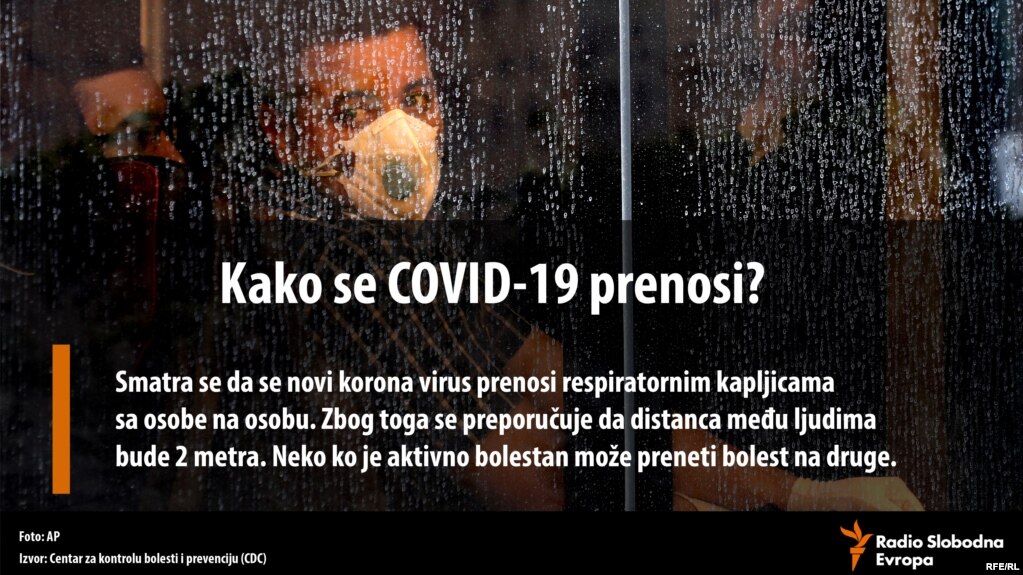RFE/RL Counters Disinformation To Help Combat Coronavirus In High-Risk Countries
Audiences are relying on Radio Free Europe/Radio Liberty (RFE/RL) as a source of trusted news and an alternative to inaction and rampant disinformation in the countries where they live.

WASHINGTON — From coronavirus hotspots like Iran to China neighbors like Russia, Afghanistan, Pakistan, and Central Asia, audiences are relying on Radio Free Europe/Radio Liberty (RFE/RL) as a source of trusted news and an alternative to inaction and rampant disinformation in the countries where they live.
“We are the local press in the countries where we work,” said Jamie Fly. “Our reporters, and their families, live and work in these communities, and they personally feel the urgency of the situation and understand the grave threat posed by a lack of information or false claims.” Fly said, “For many of our audiences, especially those subject to rampant disinformation circulated by authoritarian regimes, we are the difference between them being informed and prepared about the virus, or not.”
RFE/RL began tackling the coronavirus in January, with reporting by the Russian Service’s Siberian unit about its emergence in China, and coverage of early efforts by governments to spread conspiracy theories about its origins. Radio Farda launched its own investigation of coronavirus cases to challenge false reporting by the Iranian regime, documenting province by province that virus-related fatalities in the country are at least 50 percent higher than authorities claim. Journalists in numerous countries have had to disperse a fog of politicized and false statements, and refute dubious advice propagated by public figures — including presidents — about the preventive effects of vodka, dry saunas, and exotic herbs. In a March 16 report about Russia, the EU declared that “pro-Kremlin media outlets are actively spreading disinformation about coronavirus in an attempt to ‘undermine public trust’ in Western countries.” The Russian-language network Current Time has produced videos debunking elaborate conspiracy theories by Russia’s most-watched TV personalities, attributing the virus to U.S. President Donald Trump, the Miss Universe beauty pageant, biological warfare, and the CIA.
In addition to countering disinformation, RFE/RL journalists have worked overtime to fill the void in basic public health information, using innovative tools in local languages to provide clear guidance on hand-washing, face masks, the unfamiliar concept of “social distancing,” and how to self-quarantine. The Belarus Service is educating its audiences with an interactive quiz about the virus and how it spreads. Targeting a younger, digital population short on reliable news, the Georgian Service is publishing special info-cards on Facebook and Instagram explaining symptoms, preventive measures, and tips for working from home. Correspondents from numerous language services have interviewed medical workers in the hinterlands and reported on the availability of medical facilities and supplies.
To respond to community needs, RFE/RL journalists have taken public-interest reporting one step further, using their platforms to provide public services while urging calm. In Ukraine, where the coronavirus forced the cancellation of the country’s annual DocuDays human rights film festival, Current Time stepped up to provide free screenings of the previous year’s entire program on its documentary film channel. To help its audiences navigate a chaotic information landscape, the Bulgarian Service has stood up an interactive platform that serves as a community bulletin board, allowing people to volunteer services or ask for support. In the remote tribal regions of Pakistan, where the Taliban control the airwaves and public health information is scarce, Radio Mashaal enlisted local medical experts to explain the coronavirus’s symptoms in a Facebook video that has been viewed over 800,000 times. Reporting by the Afghan Service alerted authorities to the threat of mass infection from the influx of thousands of Afghans who have been fleeing the virus from neighboring Iran. The Tajik Service has filled a yawning information void, flooding its platforms with guidance on recommended public hygiene, while posting real-time information on train schedules and border closings for labor migrants who continue to travel. The coverage produced a 25 percent spike in views on the Service’s YouTube channel last week, pushing its viewership over the 4 million mark.
For more information, contact press@rferl.org.
###
About RFE/RL
Radio Free Europe/Radio Liberty (RFE/RL) is a private, independent international news organization whose programs — radio, Internet, television, and mobile — reach influential audiences in 23 countries, including Russia, Ukraine, Iran, Afghanistan, Pakistan, the republics of Central Asia and the Caucasus. It is funded by the U.S. Congress through USAGM.